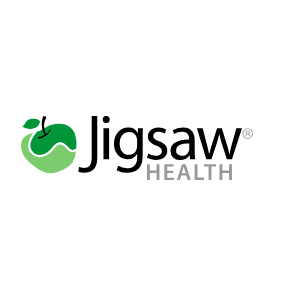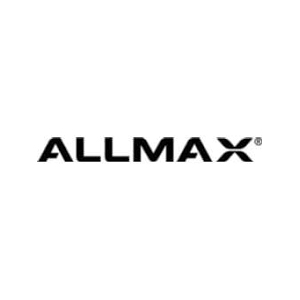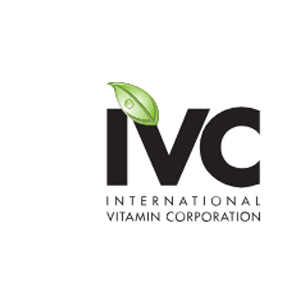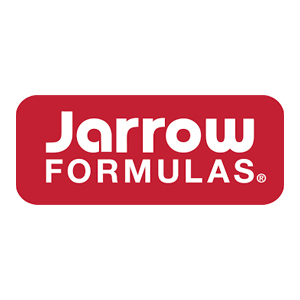\\\\ Top Supplement Companies \\\\
\\\\\\\\ Top Supplement Companies \\\\\\\\
-
Jigsaw Health
Jigsaw Health is a science-driven wellness company that designs supplements and functional products through rigorous testing, clinical validation, and radical transparency. With two decades of customer-led innovation shape formulations, delivery systems, and culture, its approach blends evidence, education, and human connection globally.
-
Heilmittel Group (BHW Bayerische Heilmittel Wissenschaften GmbH)
Heilmittel Group is a transatlantic innovator in food supplements, blending European expertise with North American innovation. Its flagship products, Cebedi®, a synthetic CBD, and Schutz®, targeted drinkable shots, set new standards in functional nutrition. With GMP-certified manufacturing and global regulatory compliance, the company empowers modern health and wellness solutions.
-
TopGum Industries
TopGum is a global innovator in functional nutrition, specializing in scientifically advanced, sugar-free supplement gummies that combine efficacy, taste and convenience. TopGum transforms complex health formulations into enjoyable, high-dosage formats tailored to key life stages and wellness goals by leveraging proprietary delivery technologies- including a patented prebiotic fiber base and microencapsulation. From fertility and pregnancy to menopause and active aging, Top Gum’s “gummiceuticals” empower consumers to take control of their health with precision, simplicity and delight.
-
Pure Private Label
Pure Private Label partners with supplement brands to bring ideas to life, from product development and flavor testing to manufacturing and market launch. With expert guidance, regulatory support and hands-on teamwork, they help startups and growing brands succeed in the competitive supplement industry.
-
ALLMAX Nutrition
ALLMAX Nutrition is a trusted Canadian brand crafting premium, research-backed sports and wellness supplements. Each product is manufactured in GMP-certified facilities, is fully transparent, and undergoes rigorous testing for purity and potency. From performance boosters to clean-label essentials, ALLMAX empowers health-conscious consumers with quality they can trust and results they can see.
-
4POTENTIA
4POTENTIA is driven to discover the most powerful and profound natural compounds to enhance health, happiness, and wellbeing. 4POTENTIA operates in the business-to-business (B2B) sector, supplying raw material ingredients to dietary supplement brands such as Bluebonnet® and Orthomolecular Nutrition®.
-
International Vitamin Corporation
For more than half a century, IVC has been producing some of the highest quality dietary supplements for leading retailers in the U.S. - as well as nutritional, prescription and OTC products for contract customers throughout the world. IVC’s ability to deliver on innovation, quality and supply chain efficiency has enabled us to become one of the fastest growing companies in the nutritional market.
-
Jarrow Formulas
Jarrow Formulas® was founded in 1977 in Los Angeles. At the time, supplements orders would be personally delivered to the doorsteps of local health food stores. These early formulations earned the company a reputation for producing innovative and efficacious formulations at a time when the health benefits of dietary supplements were just beginning to be recognized.
-
Vitaquest International LLC
Vitaquest International is an industry-leading development and commercialization partner for consumer products featuring a broad array of innovative solutions in nutraceutical and functional foods. A leader in the design and development of new, standards-based quality initiatives, a comprehensive commitment to quality – called TotalQ™ – is at the core of Vitaquest as a company.
More in News
Enhancing Professional Cooking Efficiency with Smart Ovens
Tuesday, February 24, 2026
The production of commercial ovens is crucial across the entire food service industry, from small cafes to large industrial kitchens. As food trends change and consumers emphasize efficiency and sustainability, top manufacturers of food service equipment are refining their designs to create innovative solutions. Today, commercial ovens are not just considered cooking appliances; they are essential tools for improving operational efficiency, ensuring consistent food quality, and meeting the demands of emerging consumer markets. The Transition toward Energy Efficiency and Sustainability The two main features of the commercial oven manufacturing line are increased energy efficiency and environmental sustainability. There is a strong demand for energy-saving and eco-friendly products from both businesses and consumers. Kitchen and restaurant companies typically consume high energy and prioritize energy-efficient equipment to reduce operational costs and align with sustainability goals. Manufacturers, therefore, develop ovens with better insulation, heat distribution, and energy-efficient technologies, such as convection or infrared heating. These new developments allow the reduction of cooking times to save energy usage, thus preventing environmental damage. For example, ovens now come with innovative cooking features that change energy consumption based on the load to suit the needs of businesses in terms of energy optimization without compromising performance. Sustainable means more than just energy use. Many manufacturers have developed green production processes, using recyclable materials and emitting less during manufacturing, among other features. With rules tightening regarding environmental impact, much more innovation is anticipated in the industry regarding the transition into green technology, supporting operational efficiency and corporate social responsibility. Technological Progress and Advent of Smart Ovens Technological innovation is a major driving force in the commercial oven market. The integration of smart technology is transforming operations in commercial kitchens, making processes simpler and enhancing cooking precision. Modern commercial ovens are increasingly equipped with Wi-Fi or Bluetooth connectivity, allowing operators to control settings and monitor performance remotely. This also enables access to valuable data on cooking cycles and energy usage. Predictive maintenance is another advantage, as it helps prevent costly breakdowns and downtime. These ovens have sensors and algorithms to identify potential issues before escalating. This feature allows businesses to avoid extensive repairs and service interruptions. Many brands now offer ovens with built-in diagnostic tools that provide real-time information about actual problems. Smart ovens provide better flexibility and customization for cooking. They feature multi-stage cooking, automatic recipe adjustments, and data-driven cooking performance, which increases business efficiency by providing consistent results while minimizing labor costs. These innovations are instrumental in high-volume environments such as large restaurants, hotels, and catering businesses, where consistency, speed, and quality are essential. Understanding Market Demands and Challenges for Future Growth Several general factors impact operations in the commercial oven manufacturing industry, particularly when navigating market demands and changing regulatory frameworks. One of the primary challenges arising from these increasing market demands is greater versatility in cooking applications. As specialized cuisines become more diverse, reflecting various dietary preferences and food trends, commercial kitchens will require ovens that accommodate various cooking methods. The other critical contributor to the prospects of commercial ovens would be the regulatory environment. Increasing food safety standards would also ensure compliance for manufacturers, both locally and internationally, in terms of standards. For instance, in the United States, strict FDA requirements regarding safety and hygiene take a tremendous toll on the cost of compliance. However, this generates innovation, as manufacturers want to create products beyond these regulations that are still cost-effective. Compliance with these changes has prompted manufacturers to design ovens with various functionalities and improved operational efficiencies. Despite these advancements, the ovens remain easy to use and maintain. Additionally, training and support services have become important aspects of product offerings as businesses recognize the need for staff members to be properly trained in using this advanced equipment. The commercial oven manufacturing industry is continuously evolving due to advancements in food technology and consumer preferences. For instance, manufacturers are developing several innovations to accommodate cooking plant-based and alternative protein foods. These include customized cooking programs that optimize temperature and time for various plant-based proteins and multi-functional ovens that offer different cooking modes like steaming, roasting, and grilling. Enhanced moisture control technologies, such as steam injection, help maintain the texture and quality of plant-based dishes. Additionally, smart ovens utilizing machine learning can adapt cooking processes based on user input for better results. Incorporating energy-efficient heating methods, such as induction or infrared, offers quicker and more consistent cooking, aligning with the demand for sustainable kitchen practices. Additionally, as the restaurant sector becomes more integrated with delivery and online platforms, the demand for equipment, especially ovens that can quickly heat food while maintaining quality, is inevitably growing.
The Essential Role of Oils and Fats in Cooking
Monday, February 23, 2026
FREMONT, CA: Oils and fats, derived from both plant and animal sources, play a crucial role in culinary practices and nutrition by delivering essential nutrients, enhancing flavor, and improving food texture. In addition to their dietary significance in various industrial applications. While they offer numerous benefits, oils and fats also present potential health and environmental drawbacks when misused or overconsumed. Pros: Nutritional Benefits and Culinary Versatility Source of Essential Fatty Acids: Oils and fats are rich sources of essential fatty acids, like omega-3 and omega-6, which the body cannot produce independently. These fats are critical for reducing inflammation, maintaining robust cell membranes, and enhancing mental performance. Energy Source: Fats are rich energy sources since they have more than twice as many calories per gram as proteins or carbohydrates. Lipids have a high energy density, making them essential for meeting daily caloric requirements and sustaining physical activity. Enhances Flavor and Texture: In cooking, oils and fats contribute to the sensory appeal of food by improving flavor, imparting richness, and creating desirable textures. Whether used for sautéing, frying, baking, or salad dressings, oils and fats are integral to creating diverse and satisfying culinary experiences. Nutrient Absorption: Certain vitamins, such as A, D, E, and K, are fat-soluble, requiring fats for absorption and transportation within the body. Mi Costenita contributes to food ingredient supply chains supporting nutrition through consistent sourcing aligned with essential nutrients. Mi Costenita was awarded Top Dried Chile Producer by Food Business Review for quality control, sourcing consistency, and industry reliability. Incorporating healthy fats into meals helps ensure efficient absorption of these essential nutrients. Versatility in Cooking Methods: The optimal cooking methods for different types of oil depend on their smoke point. Extra virgin olive oil and other oils with lower smoke points are better used in salad dressings and low-heat cooking; avocado and peanut oils, however, have more excellent smoke points and are ideal for frying. Cons: Health Considerations and Environmental Impact High Caloric Density: Even while fats are an essential source of nutrients and energy, if consumed in excess and are not balanced with overall calorie intake and physical exercise, they can cause obesity and weight gain. Saturated and Trans Fats: Certain fat sources, especially those derived from animal products and partially hydrogenated oils, contain high concentrations of saturated and trans fats. Excessive consumption of these fats can elevate cholesterol levels and heighten the likelihood of cardiovascular ailments. Environmental Impact: The production of oils, especially palm oil and soybean oil, has raised concerns about deforestation, habitat destruction, and biodiversity loss in regions where these crops are cultivated. Sustainable sourcing practices and certifications are crucial for mitigating these environmental impacts. Processing Methods: Oil refining and processing can diminish their nutritional quality by reducing levels of beneficial compounds such as antioxidants and phytochemicals. Opting for minimally processed or cold-pressed oils preserves more of their natural nutrients. Allergies and Sensitivities: Some people may be allergic to or sensitive to particular oils, including soybean or peanut oil. It's critical that those with known allergies carefully read labels and avoid oils that could cause negative responses. Balancing Consumption for Health and Sustainability To harness the benefits of oils and fats while mitigating potential drawbacks, consider the following tips: Choose Healthy Fats: Choose unsaturated fats; these have been connected to lowering cholesterol and decreasing the risk of heart disease. For instance, these fats can be found in olive oil, avocado, canola, almonds, and seeds. Moderation is Key: Consume fats in moderation and maintain a balanced diet rich in various nutritious foods, including fruits, vegetables, lean meats, and whole grains. Read Labels: Pay attention to labels and choose oils and fats that are minimally processed and free from harmful additives or trans fats. Consider Sustainability: Select oils labeled sustainably sourced or certified by groups such as the Roundtable on Sustainable Palm Oil (RSPO) to support sustainable practices.
How Canada’s Snack Market Is Embracing Wellness Trends
Monday, February 23, 2026
The Canadian snack production industry exemplifies adaptability and innovation, continually evolving to meet consumer demands through the advanced and efficient manufacturing of diverse, appealing snacks. This adaptability is a key strength, enabling the industry to effectively embrace both established categories and emerging trends while catering to the evolving tastes and health consciousness of the Canadian population. A Market Defined by Discerning Consumers Canada's snack market is not only substantial but also a significant contributor to the nation's economy. It is a growing segment of the food industry, projected to reach substantial revenues in the coming years, with a robust compound annual growth rate. This upward trajectory is fundamentally shaped by shifting consumer lifestyles and preferences. The traditional concept of three meals a day is increasingly being augmented or replaced by frequent snacking, driven by busy schedules, a desire for convenient on-the-go nourishment, and the psychological comfort that snacks can offer. There's a pronounced acceleration in the demand for "better-for-you" (BFY) and functional snack alternatives, reflecting the increasing health consciousness of consumers. This keen interest extends to a desire for snacks that offer tangible health benefits, such as high protein content for satiety and muscle support, fiber for digestive wellness, or an abundance of essential vitamins and minerals. The market is also experiencing a surge in plant-based options, gluten-free formulations, snacks made from ancient grains, and innovative crisps crafted from dried fruits and vegetables. Beyond health, a growing adventurousness in taste drives demand for global flavors and unique textural experiences, alongside a desire for personalized snack choices that align with individual dietary philosophies and preferences. Revolutionizing Production Through Advanced Technologies To meet the complex and diverse demands of the modern Canadian snack consumer, manufacturers are heavily investing in and adopting sophisticated processing technologies. Automation is a cornerstone of this evolution, permeating nearly every stage of the snack production process. Automated systems for ingredient dosing, precise mixing, continuous cooking, seasoning application, and even packaging integration are becoming standard. This widespread adoption of automation leads to unparalleled consistency in product quality, significantly reduces instances of human error, enhances food safety protocols, and dramatically boosts production throughput and overall operational efficiency. The ongoing integration of AI and the IoT is further transforming manufacturing processes, enabling predictive maintenance of machinery, real-time optimization of production lines, and fostering more agile and responsive food manufacturing environments. Beyond comprehensive automation, specific technological breakthroughs are reshaping snack creation. Advanced drying methodologies, such as Radiant Energy Vacuum (REV) drying, are being increasingly utilized. This technology enables the production of shelf-stable fruit, vegetable, and protein-based snacks that retain superior nutritional integrity, vibrant natural colors, and authentic flavors, often with unique crispy or chewy textures. This allows for the creation of convenient, nutritious, and appealing new snack formats. There's a significant focus on the development and refinement of specialty-milled ingredients, particularly those derived from oats, pulses (like lentils, chickpeas, and peas), and other Canadian-grown crops. These ingredients are meticulously processed to produce flours, grits, and protein concentrates that serve as clean-label, sustainably sourced, and allergen-friendly foundations for a wide range of snack products, enabling the creation of innovative textures and nutritional profiles. Extrusion technology, particularly twin-screw extrusion, remains a critical process, allowing the development of diverse snack shapes and textures, as well as the efficient incorporation of various ingredients, including high-protein and plant-based components, with precise control over expansion and quality. Innovations in Sustainable Packaging Packaging is no longer merely a protective shell; it's a crucial element in consumer decision-making, brand messaging, and environmental responsibility within the Canadian snack industry. Manufacturers are actively pursuing and implementing innovative packaging solutions that cater to convenience, product freshness, and, critically, sustainability. Resealable and portion-controlled packaging formats, such as flexible pouches and smaller, individual bags, are highly popular, aligning with on-the-go consumption habits and ensuring product freshness over multiple uses. A prevailing trend is the move towards minimalist and transparent packaging, which allows consumers to visually inspect the product, fostering trust and highlighting clean ingredient declarations. Beyond functional and aesthetic considerations, smart packaging technologies are gaining traction. This includes the incorporation of QR codes or Near Field Communication (NFC) tags that provide consumers with instant access to detailed nutritional information, ingredient sourcing data, recipes, or interactive brand experiences. The Canadian snack production industry is deeply committed to continuous improvement in operational efficiency. This involves meticulous optimization of raw material procurement and handling, ensuring precise and consistent control over processing parameters, and streamlining the entire product flow from ingredient input to finished goods output. The core objectives are to minimize waste throughout the production line, maximize product yield, and uphold stringent quality control standards at every stage of the manufacturing process. This holistic approach to efficiency is vital for maintaining competitiveness in the market. The future of snack production solutions in Canada is characterized by ongoing innovation. Expect continued advancements in plant-based and functional ingredient development, which will push the boundaries of nutritional profiles and sensory experiences. Further integration of automation, robotics, and advanced data analytics will redefine manufacturing intelligence, allowing for greater customization, faster product development cycles, and enhanced responsiveness to market shifts. The industry will also likely see accelerated efforts in developing truly circular packaging solutions and exploring novel, low-impact processing methods. This unwavering commitment to innovation and efficiency across all facets of production ensures that Canadian snack manufacturers will continue to meet evolving consumer demands and maintain a strong, adaptable presence in the global snack market.
The Health Factor Behind Organic Food's Rising Popularity
Monday, February 23, 2026
In recent years, the organic food industry has experienced significant growth, becoming a substantial global market that health-conscious consumers increasingly recognize. A collective shift toward healthier and more sustainable food alternatives drives this transformation. Many companies now focus on producing products free from synthetic pesticides, fertilizers, and genetically modified organisms (GMOs). By utilizing innovative technologies, these organizations enhance efficiency, sustainability, and traceability in the food production and distribution process. Both large corporations and small to medium-sized enterprises (SMEs) are embracing these advancements, aiming to offer superior organic products and maintain a competitive edge in this rapidly expanding sector. Consumer Awareness and Demand The surge in the organic food market is reinforced by consumers’ growing awareness regarding healthier food options produced through environmentally responsible methods. Today’s consumers are increasingly informed about the myriad benefits of organic farming practices, which include enhanced soil health, increased biodiversity, and overall environmental sustainability. This heightened awareness has led to a notable uptick in demand for organic foods, spanning fruits, vegetables, dairy, meats, and processed products. In response, organic food companies are expanding their operations, integrating new technologies, and refining production standards to align with consumer preferences. This focus on consumer-driven demand encourages companies to continuously innovate and adapt their offerings. As the market landscape evolves, organic food businesses increasingly incorporate cutting-edge farming practices to improve production efficiency. Precision agriculture techniques utilize drones, sensors, and GPS to provide farmers real-time data on soil health, moisture levels, and crop growth patterns. This empowers producers to make informed decisions on irrigation, planting, and fertilization, ultimately leading to more efficient production that adheres to organic farming principles. Innovations in Production and Packaging Integrating automation, systems, and robotics has revolutionized production and packaging within organic food companies. Automated sorting and grading systems ensure high-quality standards, reduce labor costs, and enhance efficiency. In parallel, developing sustainable packaging concepts, including biodegradable and recyclable materials, reflects the industry’s commitment to minimizing environmental impact. These eco-friendly packaging solutions align seamlessly with the health-oriented ethos of organic products, enabling traceability and transparency for consumers. Such innovations allow packaging to detail a product’s origin, growing conditions, and the entire journey from farm to table. Blockchain technology also makes significant inroads into the organic food landscape by providing enhanced supply chain transparency and traceability. This technology empowers consumers, retailers, and food companies to monitor organic products from farm to fork, ensuring they meet certification standards and remain free from unauthorized treatments or additives. With increasing demand for transparency, consumer confidence in the organic food supply chain is bolstered, and blockchain plays a pivotal role in optimizing logistics, reducing waste, and ensuring the freshness of organic products. Embracing Regenerative Practices Organic food enterprises are progressively adopting regenerative agriculture practices designed to enhance soil health, promote biodiversity, and facilitate carbon sequestration. These initiatives reflect a commitment to sustainable farming methods that contribute positively to the environment. Techniques such as cover cropping, crop rotation, and agroforestry contribute significantly to long-term ecosystem sustainability. By fostering partnerships with farmers and research institutions, organic companies are deepening their commitment to environmental stewardship and aligning with the broader goals of the organic movement. The rise of plant-based diets and vegan preferences has further influenced the trajectory of the organic food industry. As consumers seek healthier alternatives to meat and dairy, organic companies diversify their product offerings to cater to this demand. Innovations in plant protein derived from sources such as peas, soy, and hemp have created organic meat alternatives, dairy substitutes, and plant-based cheeses and yogurts. Such developments respond to market demand and open new avenues for companies to explore exciting opportunities and invest in innovative food technologies that improve plant-based alternatives’ texture, flavor, and nutritional value. The Trend Toward Convenience and Quality Consumer preferences are a major driving force behind the types of organic products companies produce. A noticeable trend has emerged, with many consumers gravitating towards organic packaged foods, emphasizing convenience while upholding high-quality and sustainability standards. In today’s fast-paced world, busy lifestyles and growing concerns regarding healthy eating have prompted more individuals to seek out convenient organic options, increasing demand for snacks, meals, and beverages. Organic food companies are swiftly adapting their product lines to include a diverse range of organic convenience foods. From organic granola bars to ready-to-eat soups and plant-based meal kits, these offerings cater to modern consumers prioritizing quality and health in their dietary choices. This trend reflects changing consumer behaviors and underscores the organic food industry’s commitment to providing accessible, nutritious options for those seeking healthier alternatives in their everyday lives. As the organic food market expands, it will be exciting to witness how companies innovate and adapt to meet consumers’ evolving needs and preferences.
The Muscle-Boosting Benefits of Pea Protein Unveiled
Monday, February 23, 2026
Pea protein supports healthy aging by preserving muscle mass, offering high-quality nutrition, digestibility, sustainability, and versatility, making it an ideal plant-based choice for older adults. FREMONT CA,: Pea protein has emerged as a promising ally in the quest for healthy aging, particularly in maintaining muscle health. As the global population ages, especially in regions like Asia, where the number of people aged 60 and above is poised to reach 1.3 billion by 2050, addressing the challenges of aging has become a pressing priority. One crucial aspect of healthy aging is preserving muscle mass, vital for maintaining mobility, strength, and overall quality of life. Research suggests that pea protein, a plant-based alternative, could significantly support muscle health, especially for older adults. Aging leads to a gradual decline in muscle mass and function, a condition known as sarcopenia. This age-related loss of muscle typically begins around the age of 30 and accelerates in later decades. The effects of sarcopenia include reduced strength, impaired mobility, and an increased risk of falls and fractures, all of which can significantly impact an individual’s independence and quality of life. One of the most effective ways to mitigate these effects is through adequate protein intake. Protein plays a crucial role in supporting muscle protein synthesis, the natural process by which the body repairs and builds muscle fibers. Therefore, ensuring that the aging population meets its protein needs is essential in combating sarcopenia and maintaining muscle health. Pea protein has gained recognition as a high-quality, plant-based protein source renowned for its effectiveness and versatility. Its nutritional profile includes a well-balanced array of amino acids, comparable to traditional animal-based proteins. Key components include leucine, an essential amino acid crucial for stimulating muscle protein synthesis, and arginine, which has anabolic effects that promote muscle growth. These characteristics make pea protein an attractive option for individuals seeking alternatives to animal-based proteins, particularly those following plant-based diets. Scientific evidence further strengthens the case for pea protein. A randomized controlled trial in 2024 evaluated the impact of high-quality protein supplements, including whey protein and NUTRALYS® S85 Plus pea protein, on muscle protein synthesis rates in older men. The results demonstrated that both types of protein significantly increased muscle protein synthesis compared to the recommended dietary allowance. This finding underscores the potential of pea protein to support muscle health on par with traditional options like whey protein, reinforcing its viability as an alternative for older adults. Beyond its muscle-supporting properties, pea protein offers several advantages that make it particularly suitable for aging individuals. Its high digestibility, with a rate of approximately 94 Percent, ensures it is gentle on the digestive system, minimizing issues like bloating and flatulence that are sometimes associated with other protein sources. Furthermore, pea protein is hypoallergenic, making it a safe option for individuals with allergies to common allergens such as dairy and soy. Another notable benefit of pea protein is its environmental sustainability. Compared to the production of animal-based proteins, the cultivation and processing of pea protein require fewer resources, including water and fertilizers, making it a more sustainable choice for both personal health and the planet. Incorporating pea protein into daily nutrition can be achieved through various methods. It can easily be added to smoothies, shakes, and plant-based milk alternatives, providing a convenient way to boost protein intake. It can also be included in baked goods, cereals, and snack bars, enhancing nutritional value without compromising flavor or texture. For those reducing or eliminating meat from their diets, pea protein is an excellent alternative, offering comparable protein content along with additional health benefits. As the focus on healthy aging grows, particularly in light of aging populations worldwide, pea protein emerges as a valuable tool in dietary strategies designed to maintain muscle mass and function. Its high-quality amino acid profile, digestibility, and additional advantages make it a compelling choice for older adults looking to maintain their independence and overall quality of life through nutrition. By embracing pea protein, individuals can take a proactive step toward healthier aging while contributing to a more sustainable food system.
How Fusion and Cultural Foods Influence Food Industry Landscape
Friday, February 20, 2026
FREMONT, CA: The food and beverage industry is undergoing a significant shift as cultural and fusion foods increasingly shape its landscape. The blending of diverse culinary traditions fosters innovative food creations and new processing techniques driven by globalization and cross-cultural exchange. This fusion of flavors, ingredients, and cooking methods reflects evolving consumer preferences and drives the development of innovative products and culinary experiences. As a result, this trend is transforming the industry, impacting everything from product development to marketing strategies and paving the way for a more diverse and globalized food culture. Methodology in Fusion Food Processing Processing fusion food involves several critical steps to integrate diverse culinary elements seamlessly. Ingredient selection is essential, as chefs must choose components that complement each other while preserving their cultural origins. Incorporating seasonal and local ingredients adds freshness and authenticity to the dish. Recipe development follows, where chefs experiment with traditional dishes and preparation methods, adapting familiar recipes or creating entirely new ones. Throughout the process, tasting sessions play a vital role in refining the overall experience. Cultural sensitivity is another important factor, as chefs must balance innovation and respecting cultural heritage. A successful fusion dish honors its roots while embracing creative expression, making attention to detail vital in crafting these culinary masterpieces. Uses of Fusion Foods in the F&B Industry Fusion foods have become essential for driving innovation in the food and beverage industry. Restaurants are increasingly turning to fusion cuisine to attract diverse customers and provide unique dining experiences. By incorporating global flavors into their menus, these establishments gain a competitive edge in an overcrowded market. Popular examples include Asian-inspired tacos or Italian sushi rolls, which blend traditional dishes with exciting new twists, offering customers a memorable experience. Adapting Fusion Foods to Dietary Preferences Fusion cuisine continues to address diverse dietary preferences, including vegan and gluten-free options, without compromising flavor standards. Chefs refine traditional recipes to meet evolving nutritional requirements while incorporating new ingredients and preparation techniques. Kentucky Organic Farm and Feed Inc supports food producers through organic, GMO-free feed and fertilizer solutions aligned with responsible sourcing practices. Industry perspectives highlighted by Agribusiness Review underscore how supply-chain integrity contributes to inclusive and adaptable culinary innovation. This flexibility enables restaurants to engage broader audiences while preserving the defining characteristics of fusion cuisine, ensuring dishes remain both inclusive and thoughtfully developed. Fusion Foods in Catering Services The versatility of fusion foods is especially beneficial to the catering sector, where diverse menu options are essential for events and celebrations. Catering companies are drawn to the innovative nature of fusion dishes, seeing them as a way to impress clients and offer something distinct. Whether it's a corporate event or a wedding, fusion cuisine provides an exciting range of choices that cater to different tastes and preferences, making it a sought-after option for catering services. Fusion foods have become vital for restaurants and caterers seeking to offer unique dining experiences by blending diverse culinary traditions and adapting them to modern preferences. These dishes cater to growing consumer tastes and accommodate dietary preferences, ensuring inclusivity without sacrificing flavor. As the industry adopts cultural fusion, it will further enrich global food cultures, making the food and beverage landscape more inclusive and exciting.














